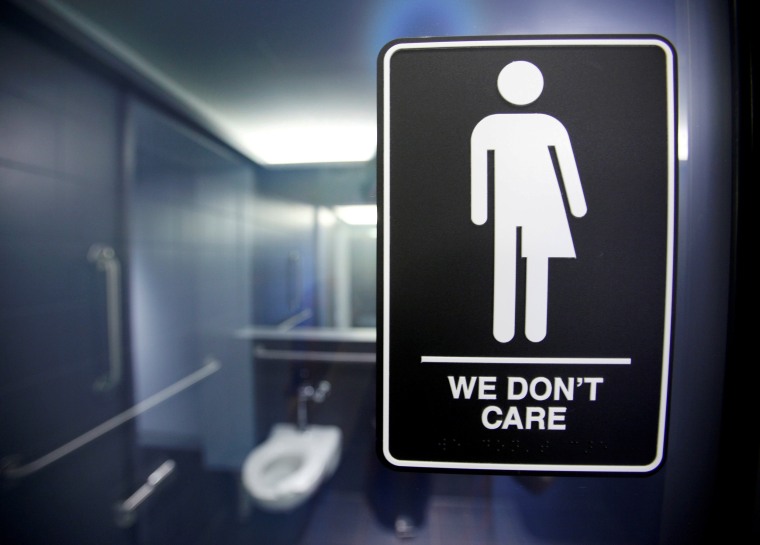Opponents of North Carolina's controversial bathroom law urged a federal judge Monday to block its enforcement, arguing that it deprives transgender people of "respect, dignity and equal access to public facilities."
Adopted in March, the law requires schools and public agencies in the state to maintain restrooms designated for and used only by students and others based on their biological sex. The challengers include the U.S. Justice Department, three transgender people and the American Civil Liberties Union.
They asked U.S. District Court Judge Thomas Schroeder to put the law on hold until he rules later this year on its constitutionality, after holding a trial in late October or early November.
The judge did not immediately rule after Monday's hearing and instead asked for additional legal briefs. A decision is therefore not likely before next week.
Among the challengers is Joaquín Carcaño, a 27-year-old employee of the University of North Carolina at Chapel Hill. Though born female, he identifies as male. Using the women's restroom, his lawyers argued, is not an option.
Related: NBA Pulls All-Star Game Out of Charlotte Over Transgender Bathroom Law HB2
"He would face harassment and violence from those who correctly perceive that he is a man using facilities designated for women." During the early stages of his gender transition, his lawyers said in court documents, "he was screamed at, shoved, slapped and told to get out when he tried to use the female restroom."
Requiring transgender people to use single-user restrooms isn't the answer, they argued, because such facilities are often not available and because such a requirement "is stigmatizing and brands them as second-class members of the community."
Lawyers for the state said the law is a legitimate effort to protect the privacy of its residents, especially young people. The challengers, they argued, "seek to overturn millennia of accepted practice by which men and women utilize separate facilities for using the restroom, bathing and changing clothes."
Attorneys for the University of North Carolina said no injunction is needed because its officials have neither attempted or threatened to enforce it.
They said the law contains no enforcement provisions. "The university therefore has no intention to take any steps to enforce the act against transgender people who use university bathrooms consistent with their gender identity."
Related: Obama Says Transgender Bathroom Directive Based on Law
The challengers were not asking the judge to block enforcement of the other part of the law, which prohibits local governments in North Carolina from adopting ordinances that outlaw discrimination based on sexual orientation or gender identity.
The law, known as HB2, has proven highly controversial. Some businesses have canceled conventions and dropped expansion plans, entertainers have canceled concerts, and the National Basketball Association said it would move its 2017 all-star game to another state.
North Carolina is part of the federal 4th Circuit, which ruled in April that refusing to allow students to use bathrooms corresponding to their gender identity would violate a federal law known as Title IX that bans sex discrimination by schools receiving federal funds.

